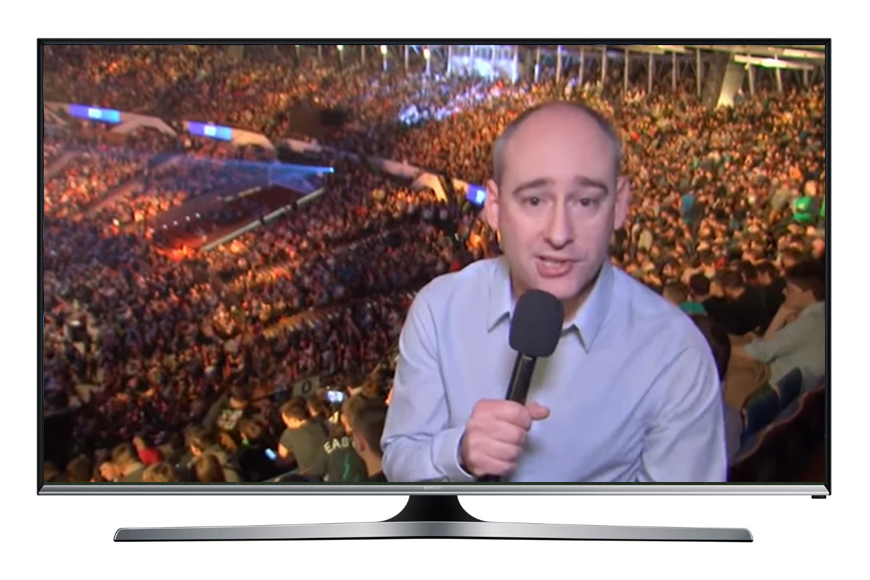With the BBC, Sky and BT Sport showing interest in competitive gaming, and now ESL announcing its own channel is in the works, eSports is hitting the small screen.
But does it need to? And will it be a success?
It’s not a simple set of questions to answer. Obviously Twitch is already huge, with 85 million users visiting the site on average each day. That figure is rising – it’s up 20 per cent over 2015.
What is Twitch doing to support UK eSports? We ask Chris Mead (MingLee)
For big eSports matches like the latter stages of the League of Legends World Championship, these can attract hundreds of thousands of viewers on Twitch at once.
But while the eSports generation may be online-focused, the popularity of competitive gaming has caught the attention of big TV broadcasters, who are starting to experiment with coverage.
BBC3 covered the League of Legends Worlds quarter finals in London online last year, and ran a one-off Supergamers programme following the lives of British pro gamers earlier this year.
Elsewhere in 2016, BT Sport has covered the Formula E Forza 6 gaming events, while Sky has covered the Intel Extreme Masters CSGO tournament and the FIFA finals.
Now eSports tournament organiser ESL has announced it is launching its own dedicated 24-hour eSports TV channel.
eSportsTV will launch in May on parent company MTG’s Viasat platforms in the Nordic and Baltic countries.
“Bringing new and existing content to more screens worldwide is key to further accelerating the growth and popularity of eSports, and we’re on a mission to reach every gamer in the world.”
We asked ESL if the channel will appear on Sky or freeview in the UK, and while nothing is confirmed yet, the company did say it’s “in talks with other TV distributors and platform operators to make the channel available around the world”.
“This channel will enable partnerships with local linear and digital broadcasters and distributors, to better cater to local audiences with the most attractive esports content offering,” ESL added in a statement.
It’s worth noting that the channel aims to feature ESL’s core competitions and tournaments, like ESL One, Intel Extreme Masters and Pro League circuits, so obviously don’t expect to see any Gfinity tournaments or other big global events like the Dota 2 International or League of Legends Worlds.
But does there need to be an ESL TV channel? The organisation already has more than 100 million digital viewers, with over 2,000 live hours of gaming and eSports content delivered each year.
However, it’s arguably all about expansion and potential growth. By hitting the small screen, eSportsTV will tap into an audience of ‘more than two billion gamers and 250 million eSports fans’ that ESL says the industry will have by the end of next year.
eSportsTV will operate alongside already existing partnerships ESL has in place with Twitch, Azubu, Hitbox and Yahoo.
“Bringing new and existing content to more screens worldwide is key to further accelerating the growth and popularity of eSports, and we’re on a mission to reach every gamer in the world.”
Would you watch ESL’s TV channel? Do you want to see more eSports on TV?

Dom is an award-winning writer and finalist of the Esports Journalist of the Year 2023 award. He has almost two decades of experience in journalism, and left Esports News UK in June 2025.
As a long-time gamer having first picked up the NES controller in the late ’80s, he has written for a range of publications including GamesTM, Nintendo Official Magazine, industry publication MCV and others. He also previously worked as head of content for the British Esports Federation.


